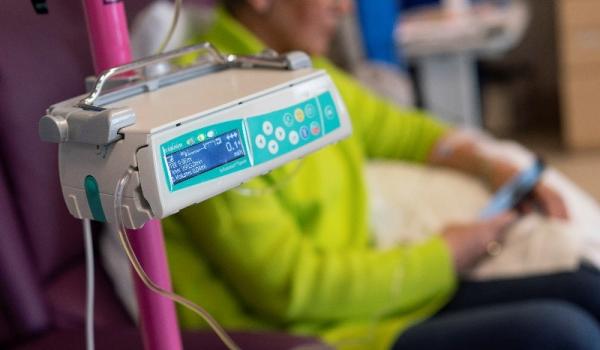ROSELLA (GOG-3073, ENGOT-Ov72/MITO): a phase 3 study of relacorilant and nab-paclitaxel versus nab-paclitaxel in advanced, platinum-resistant ovarian cancer
Who can take part
Please note - unless we state otherwise in the summary, you need to talk to your doctor about joining a trial.
You may be able to take part in this trial if you:
-
are aged 18 or over
-
have high-grade serous, epithelial ovarian, primary peritoneal or fallopian tube cancer
-
have platinum-resistant ovarian cancer (cancer that has come back within 6 months of receiving platinum-based chemotherapy (carboplatin)
-
are in good general physical health
-
have previously received Bevacizumab (Avastin)
-
have received at least one but not more than three previous lines of chemotherapy
This is not an exhaustive list. If you're interested in taking part in a clinical trial, you should speak to your doctor about what other criteria might apply.
About the trial
Researchers in this trial are trying to find better ways of treating platinum-resistant ovarian cancer. Platinum resistance means your cancer no longer responds to platinum-based chemotherapy (e.g. carboplatin).
Strong evidence suggests that cortisol, a hormone in your body, can affect how well certain cancer treatments work. Scientists have found that by adjusting the way cortisol works, they might be able to make cancer treatments more effective.
In many types of solid tumours, there's a specific target called the glucocorticoid receptor. Cortisol, when it interacts with this receptor, can sometimes interfere with cancer treatments. It can either stop the tumour-killing effects of some therapies or even promote the growth of the tumour. In some cases, cortisol also hampers the body's immune response, which is important for fighting cancer.
By finding ways to control cortisol's effects, scientists hope to improve the outcomes of cancer treatments. In this trial, researchers will test a new drug called Relacorilant.
The drugs being used in this trial are:
-
Nab-paclitaxel: this is the standard chemotherapy drug paclitaxel but it's prepared in a different way. This paclitaxel is bound to albumin, a protein found in blood. This formulation doesn't require the same pre-medication with steroids and antihistamines that traditional paclitaxel often needs. The albumin-bound paclitaxel is thought to be better tolerated by some patients. It is given as a drip into the vein.
-
Relacorilant is a type of medication that works by interacting with the glucocorticoid receptor and changing the effect of cortisol on the body. It is given as a tablet by mouth.
If you take part in this trial you will be randomised (placed into a treatment group by a computer) into one of these two groups
-
Group one: you will receive both nab-paclitaxel and relarcorilant
-
Group two: you will receive nab-paclitaxel alone.
All participants will be followed up by the research team.



